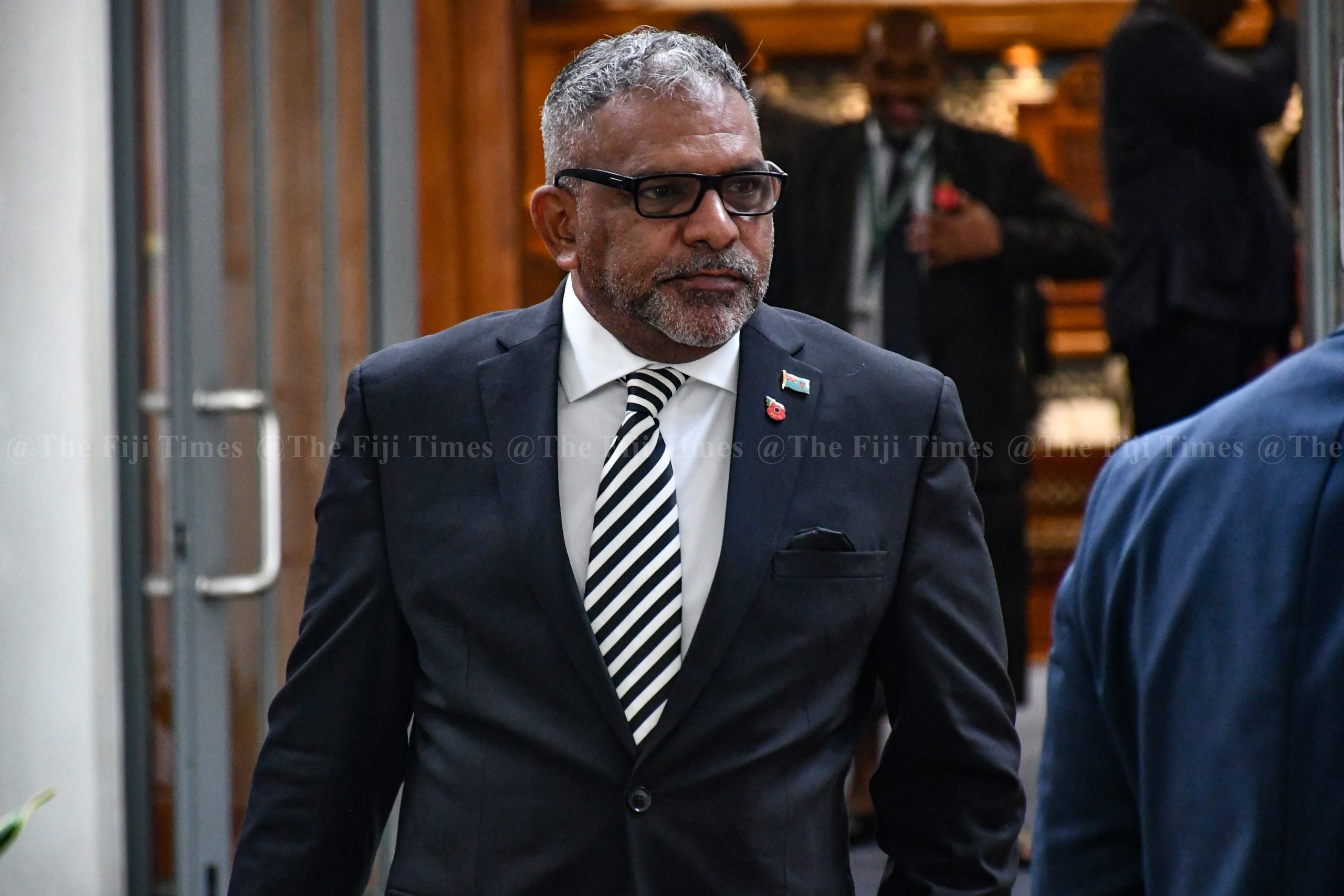A DEBATE on Government’s performance ensued in Parliament yesterday after Opposition MP Faiyaz Koya said the Coalition Government had failed to maintain economic stability and unity, and accused it of leading the country backwards through poor management and indecision.
Speaking during his end-of-week statement in Parliament, Mr Koya said the Coalition inherited a strong economy in 2022 but had since “shaken that foundation”.
“There was stability, investor confidence and a clear path to recovery,” he said.
“Three years later, that foundation has been weakened by inconsistency and poor leadership. Families that once managed to survive are now sinking under rising food prices and utility costs.”
But Minister for Finance Esrom Immanuel rejected the Opposition’s claims, saying Fiji’s economy was stronger now than when the Coalition took office.
He said when the Coalition took office in December 2022, it inherited an economy weakened by years of “reckless economic management and borrowing” compounded by the pandemic.
“Infrastructure had been neglected,” he said.
“The health system was in distress. The water system was in crisis. Communities were confronting growing social problems, including drug-related issues.”
Mr Immanuel said the Coalition had reduced the debt-to-GDP ratio from 90 to 80 per cent, increased civil service pay, raised the minimum wage, maintained zero VAT on 22 essential items and improved social welfare support.
“Our financial system remains sound, inflation has been in negative territory for nine consecutive months, and we are rebuilding confidence while protecting the most vulnerable.
“Tourism is now at record levels.
“The debt-to-GDP ratio has gone down from 90 per cent to 80 per cent. Foreign reserves are also at record highs, and projections show that over the next three years, this will remain consistent. We now have a $6billion investment pipeline – up from $3billion previously.”
He said Fiji faced the same global uncertainties as other nations, with conflicts among major economies reshaping trade and increasing domestic vulnerability to climate change and disasters.



